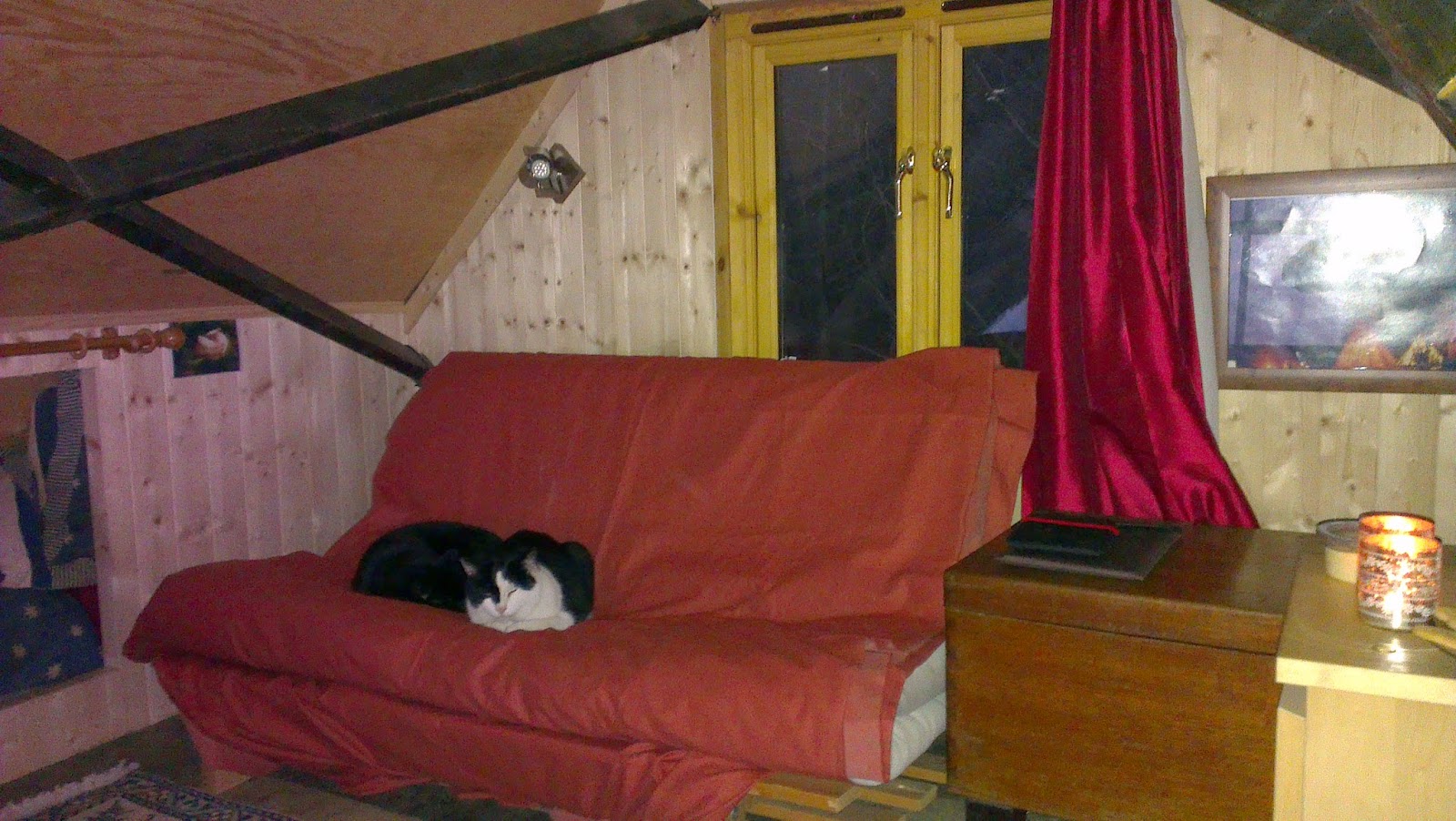Coffeeneuring

I went out for a ride with my old friend Andrew Crooks back in September, when I was — and partly because I was — still deep in depression. I rode into Castle Douglas to Gareth Montgomerie's shop, where I met up with Andrew, and we rode down to Tongland, out to Twynholm, over to Kirkcudbright, and back by Loch Fergus. We stopped for cake and coffee in the very excellent Earth's Crust bakery, and that's when Andrew broached the idea of Coffeeneuring.
There's this challenge, he said, on an American blog: ride to seven different coffee shops (and drink coffee) in six weeks, starting in October and ending in November.
Catalunya, Rule, and Law

The Spanish courts seek to suppress the Republic of Catalunya, in the name of the rule of law. The EU refuses to intervene, because it claims it's an internal Spanish matter.
The EU has high claims to support fine-sounding principles, including human rights, democracy, subsidiarity, and the rule of law; and in claiming that, if finds itself, like a bullfighter in a fight the Spanish courts denied Catalunya the right to ban, on the horns of a dilemma of its own breeding. The Rule of Law is not synonymous with democracy; in fact, it is more often antagonistic to it. This is shown by the Catalan crisis.
The place you call home

It's no secret that I live in an illegal house (you might call it a hut, a bothy, a shack, whatever). Most of my neighbours also live in informal dwellings — old vans and buses, old caravans, yurts. It's pretty common in this parish, because legal housing is unaffordable for many people. How common it is across Scotland I don't know, and I don't think anyone knows. I think it would be worth trying to find out.
So, if you live in an informal dwelling — that is, anything that isn't a legal house or flat that you legally own or rent — anywhere in Scotland, I'd like to talk to you. I've got a set of questions I'd like to ask you. Ideally I'd like to come and see you, but I can't come everywhere and see everyone, so some at least of this needs to be done by email or telephone. Ideally, if you'll permit it, I'd like to have a picture of where you live (although I understand that many people will feel anxious about this, so if you don't allow it I perfectly understand). But first, I've a web form you can fill in — and if you live in an informal dwelling I'd be really grateful if you would. It's completely anonymous.
Implementing post-scarcity hardware

The address space hinted at by using 64 bit cons-space and a 64 bit vector space containing objects each of whose length may be up to 1.4e20 bytes (2^64 of 64 bit words) is so large that a completely populated post-scarcity hardware machine can probably never be built. But that doesn't mean I'm wrong to specify such an address space: if we can make this architecture work for machines that can't (yet, anyway) be built, it will work for machines that can; and, changing the size of the pointers, which one might wish to do for storage economy, can be done with a few edits to consspaceobject.h.
But, for the moment, let's discuss a potential 32 bit PoSH machine, and how it might be built.
Topology of the hardware of the deep future

In thinking about how to write a software architecture that won't quickly become obsolescent, I find that I'm thinking increasingly about the hardware on which it will run.
In [[Post Scarcity Hardware]]I envisaged a single privileged node which managed main memory. Since then I've come to thing that this is a brittle design which will lead to bottle necks, and that each cons page will be managed by a separate node. So there needs to be a hardware architecture which provides the shortest possible paths between nodes.
